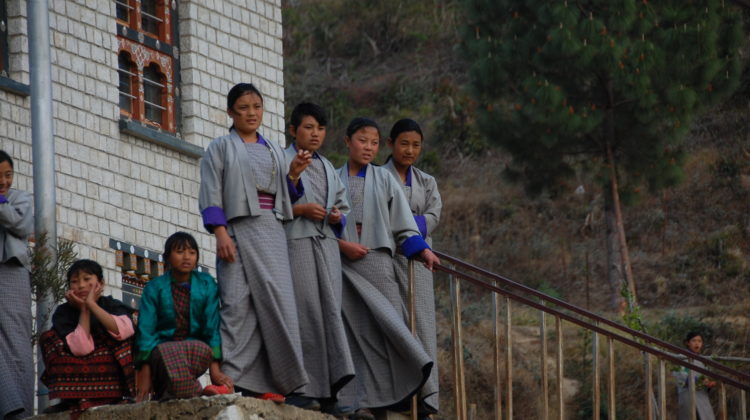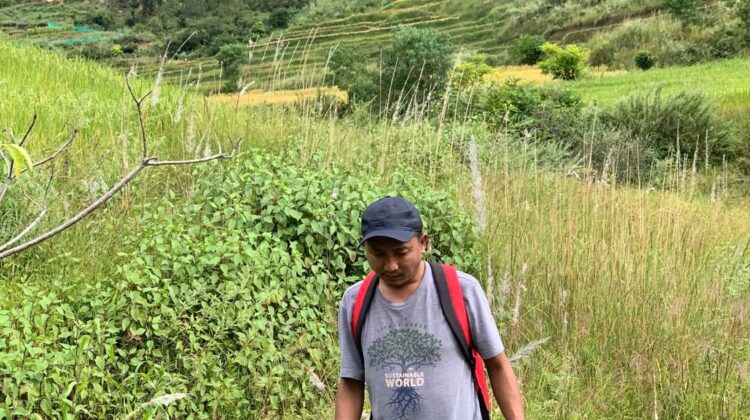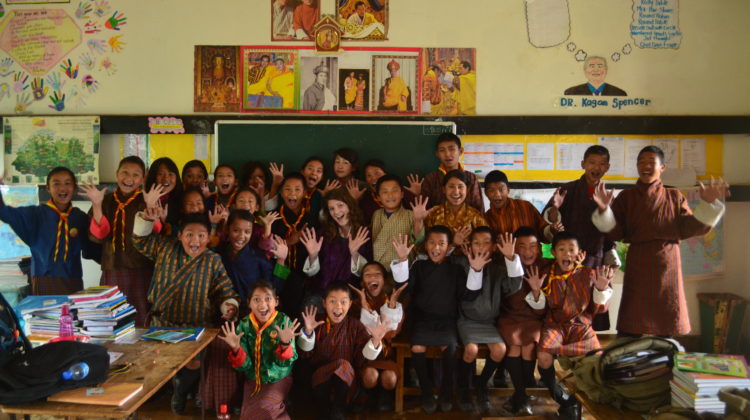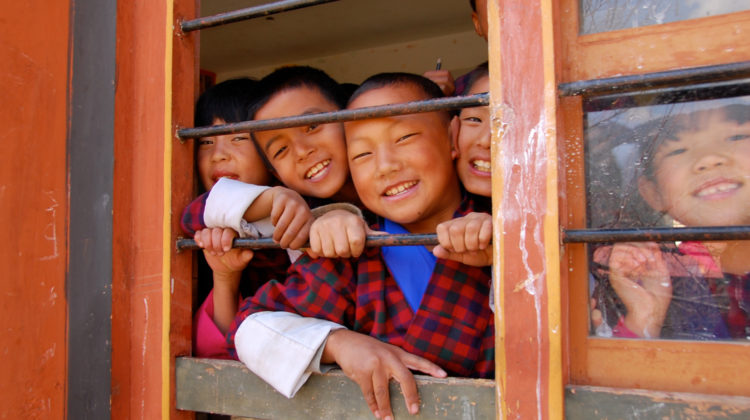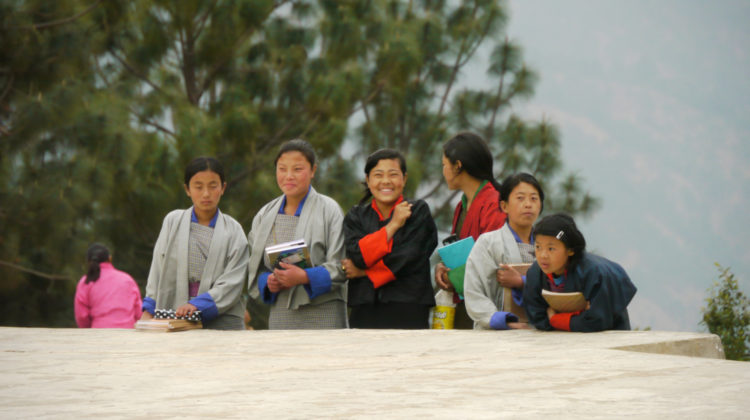Gender Equality Week, this year September 20 – 26, 2020, was first legislated in Canada in 2018 as a result of the Gender Equality Week Act. This week aims to raise awareness on the important contributions women and gender diverse people have made, to celebrate the accomplishments made to advance gender equality, and to reconfirm a commitment to address the gaps in gender equality in Canada.[1]
Extending this discussion to Bhutanese, there is much to be celebrated on the work being done to advance the closing of the gender gap. Still more is needed, however, to build greater equality for women. According to the Global Gender Gap Report 2020, Bhutan is ranked 131 out of 153 countries (previously ranked 122 in 2018). Bhutan scored highly in key areas such as educational attainment, however with few women in parliament and ministerial positions, Bhutan ranked low in political empowerment.[2]
The COVID-19 global health crisis brings attention to the gender impacts of this pandemic. As countries try not to lose their gains in gender equality, there is also opportunity to further close the gap. The theme of this year’s Gender Equality Week is #BecauseOfYou, celebrating the trailblazers who have made efforts towards gender equality possible. In Bhutan, these trailblazers are individuals, communities, Civil Society Organizations (CSOs), and institutions who are working collectively to bridge the gender gap. By providing essential health and social services, and building gender sensitive economic recovery plans, these trailblazers provide examples on how gender equality can be addressed during a pandemic.
Maintaining gains in gender equality
With the current COVID-19 health emergency exacerbating structural gender inequalities, efforts were made to ensure essential maternal and reproductive health needs for women were not neglected. Her Majesty Gyaltsuen was personally active in providing generous contributions of essential items for newborn babies.[3] This gift included blankets, clothes, baby care products, and diapers so mothers have the items they need to provide for their new baby. This gift is especially important for families facing economic hardship this year. Another health concern was the continued distribution of sanitary pads for women and girls in need.[4] Gawailing Happy Home, a safe house run by RENEW for women and children who have survived gender-based violence, received boxes of sanitary pads to ensure women and girls could maintain menstrual health hygiene. Although coronavirus became the primary health concern, gendered health issues continued to be supported, showing a gender sensitive approach to the COVID-19 emergency response.
The National Commission for Women and Children (NCWC) and RENEW also led several advocacy and supportive efforts to protect women who experienced domestic violence and abuse. NCWC organized a campaign to increase awareness of domestic violence and the potential for heightened risk of violence from staying at home.[5] This campaign was also supported by counselling services that focused on emotional support and safety planning for survivors of domestic violence or abuse. NCWC also increased community understanding of the second shift women work due to domestic and caregiving roles. They encouraged men to take a greater role to support a more equitable distribution of domestic responsibilities. Through a gender sensitive lens, these individuals, organizations, and institutions oversaw and advocated for the continuity of essential health services and safety for women.
View this post on Instagram
A post shared by RENEW (@renew_bhutan) on Aug 24, 2020 at 10:38pm PDT
Building “she-covery”
Globally, it is estimated that nearly 60% of women working in informal economies faced less earnings, less savings, and were at a greater risk of falling into poverty because of COVID-19.[6] The disappearance of jobs coupled with increased domestic opportunities due to school closures put a burden on women. In Bhutan, there was a focus on the economic stability of vulnerable women, such as Drayang workers. Drayangs are bars where girls dance, sing and entertain their predominantly male customers.[7] These entertainers are mostly young girls, many of whom have dropped out of high school with few job prospects. Other Drayang workers come from remote villages seeking income in larger cities like Thimphu. Many have weak social safety nets and rely on informal economies to sustain living costs. When these entertainment centers were ordered closed early in March as a preventative measure against coronavirus, the Drayang workers were left with few options. A Bhutanese CSO, RENEW, stepped in with the Livelihood project to drive economic empowerment for these women.[8] The project provided vocational training for Drayang workers in areas such as weaving, tailoring, and food production. They also provided training to these women, who have faced stigmatization as entertainers, to prepare them in future roles as professional traditional cultural performers. The Livelihood project also intends to provide microfinancing to support women to build upon their new skills. Outside of the project with RENEW, Drayang workers were also employed early on during COVID in government jobs, such as parking attendants.[9] These targeted initiatives helped women build resilience in unstable economies.

The tourism sector was another sector severely affected by the coronavirus pandemic.To understand the impact on individuals engaged in this sector, the National Statistics Bureau of Bhutan completed the Rapid Socio-Economic Impact Assessment of COVID-19 report. A key recommendation in this report was to design employment and reskilling programs with a gender-sensitive lens.[10] Although females account for 36% of tourism sector workers[11], the study found that the alternative programs for the re-skilling and employment of tourism workers did not do enough to reach and engage women in handicraft and service sector work. The report recommended that alternative programs and opportunities should be considered to ensure women are included in COVID-19 economic recovery plans. While there were shortcomings in the inclusion of women, looking at the data disaggregated by gender built a baseline to understand gender gaps. This has the potential to increase public consciousness on gender disparities and be implemented in future programs.
Road ahead
These stories of gender-responsive or gender-aware initiatives during COVID-19 are not conclusive of Bhutan’s entire gendered response during the coronavirus pandemic. Rather, they share insight into how a few Bhutanese CSOs and institutions have worked in new ways so that the gender gap does not widen. They also engaged in reflection, bringing different ways to promote gender equality. During times of disruption, communities have opportunities to reshape or transform how their society functions. Looking to the future, there may be new efforts to build gender equality more widely in Bhutan.
References
[1] Status of Women Canada. “About gender equality week.” Government of Canada. 2020. https://cfc-swc.gc.ca/commemoration/gew-ses/about-apropos-en.html
[2] World Economic Forum. “Global Gender Gap Report 2020.” 2019. http://www3.weforum.org/docs/WEF_GGGR_2020.pdf. p. 9, 95.
[3] Trashigang Hospital. Her Majesty’s gift to newborn mothers. Facebook. 8 September 2020. https://www.facebook.com/104293254742479/posts/111481140690357/?extid=YsMBSjmk0FFgpUN4&d=n
[4] “Gawailing Happy Home received essential sanitary napkins with the basic required information on COVID-19 and maintaining menstrual hygiene from UNFPA Bhutan.” RENEW. 2020. https://renew.org.bt/gawailing-happy-home-received-essential-sanitary-napkin-with-the-basic-required-information-on-covid-19-and-maintaining-menstrual-hygiene-from-unfpa-bhutan/
[5] National Commission for Women and Children. “All news/announcements.” NCWC. 2020. https://www.ncwc.gov.bt/allnotifications
[6] Guterres, Antonio. “Put women and girls at the centre of efforts to recover from COVID-19.” United Nations. 2020. https://www.un.org/en/un-coronavirus-communications-team/put-women-and-girls-centre-efforts-recover-covid-19
[7] Dema, Dori. “The Drayang woes.” BBS. 20 January 2012. http://www.bbs.bt/news/?p=8463
[8] “Increasing resilience of vulnerable women to COVID-19 impacts.” UNDP Bhutan. 28 August 2020. https://reliefweb.int/report/bhutan/increasing-resilience-vulnerable-women-covid-19-impacts
[9] “Drayang employees become parking fee collectors.” Kunesel. 27 April 2020. https://kuenselonline.com/drayang-employees-become-parking-fee-collectors/
[10] National Statistics Bureau and United Nations Development Programme Bhutan. Rapid Socio-Economic Impact Assessment of COVID-19 on Bhutan’s Tourism Sector. May 2020. p 4-5. http://www.nsb.gov.bt/publication/files/pub1ip5024jn.pdf
[11] National Statistics Bureau and United Nations Development Programme Bhutan. p 20.

